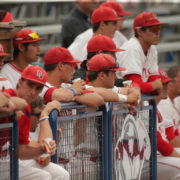Talent or Culture- “Collecting Talent or Building a Team”
It was a busy week in sports: NFL playoff’s beginning, college football bowl game recaps, free agency talk in baseball, and college basketball beginning to ramp up. However, the lead story on most sport networks was the Pittsburgh Steelers whose season ended. While most people were watching for the drama, my mind went to the ever present question of talent and culture.
In case you missed it, the Steelers All-Pro wide-receiver Antonio Brown, missed the final game of the season for what was reported as a knee injury. Information began to surface that there was more to the story. Some sort of disagreement occurred on Wednesday at the teams practice between Brown and another player. People are reporting the conflict was with future Hall of Fame quarterback, Ben Roethlisberger. Brown’s growing frustration led him to missing practices and meetings for the remainder of the week. In response, the Steelers suspended Brown for their season ending contest.
That was the “Cliff’s Notes” version of the story. I will also say, what is being reported is probably only 25% of the truth. For this article the details of the drama are not the concern. The Steelers with Brown, Roethlisberger, and running back Le’Veon Bell had three of the most talented football players in the world. Most football experts would agree that the remainder of the Steelers roster was strong as well. The team, however, was loaded with distractions from their top players. Despite a solid record (9-6-1) the team did not fulfill their potential. Did the organization compromise talent for culture?
Talent and Culture:
Talent is critical. In order to compete at the highest level, the physical and mental skills must be present. We can’t trick ourselves into thinking a strong culture and poor talent can win championships. A talented workforce is necessary for success.
A strong culture is paramount for long-term achievement. The organizations that are consistent year in and year out typically have elite cultures. Strong cultures possess clarity in their mission, understand and live their values, and have leaders that fight like crazy to maintain the organizational standards.
I think we can all agree that having elite-level talent within a strong culture leads to incredible results.
The Conflict:
What happens when the talent goes against the culture? What happens when your highest producing employee’s behavior is not aligned with the culture’s values? At what point is there a diminishing return?
The team or organization needs special skills to succeed. The talent is producing results. What should the leader do?
The situation above is maybe the most challenging dilemma a leader encounters. Most leaders, myself included, have been blinded by talent. Talent is easy to see– the results and production are right in front of your face. Culture is more abstract; it’s tougher to quantify the damage being done when the talent is not aligned. With talent, we know what we have and we know how well we’re performing. What we don’t know is how much better (or worse) we’ll be without the talent even though we know it goes against our culture. The fear of the unknown is crippling- it takes courage and faith in your culture to eliminate the problem.
Let’s be honest, an extremely gifted person is going to get more opportunities and breaks than their less skilled colleague. Talent is incredibly valuable; it comes with its perks. The art of coaching and leadership is having the pulse of the organization to understand when the distractions are negatively affecting the organization. Numbers and analytics are important, but the human side will always be present.
Talent will produce short-term wins and gains. An elite salesman will put up numbers and a special athlete will produce wins. If the talent is in conflict with the organizational values, it will eventually lead to long term issues. Another way to put it: talent is short-term and culture is long-term.
Culture trumps any individual. In fact, a strong culture lets organizations take risk on “edgier” talent because they know the group is powerful enough to handle it. The individual will either get aligned with the culture or they will be removed. That’s why you’ll see established cultures, like the New England Patriots, take chances on athletes with a negative history.
The Dilemma:
One of the biggest challenges facing 21st Century leaders is the importance of delivering results immediately. Coaches are under pressure to win now and business leaders are expected to produce numbers every quarter. This often leads to short term solutions such as compromising the culture of the organization. Now more than ever, we need courageous leaders who are willing to absorb short term blows in order to establish long term victories.
Thoughts for Reflection:
In Michael Lombardi’s book, Gridiron Genius, he shares a Bill Belichick quote, “We are not collecting talent, we are building a team.”
Is your organization intentional about building culture and strong teams? Have you ever been blinded by a “strong resume” instead of going with your gut and hiring the person who is the right fit for your culture? Has the talent in your organization ever hurt the ultimate mission?
This week, join me in fighting for the culture of our organizations. Join me in being intentional about team building. Let’s recognize a talented person and appreciate the value they bring. However, let’s also understand that compromising culture will have long-term negative consequences.
Final Note:
I have no idea how the Steelers should have handled their situation. I’ve learned to not speculate on matters where I don’t have the details. I will use the situation to help me clarify my thoughts and beliefs on the challenging dynamics leaders often face.



Leave a Reply
Want to join the discussion?Feel free to contribute!